Swimming Investigated…By A Diver
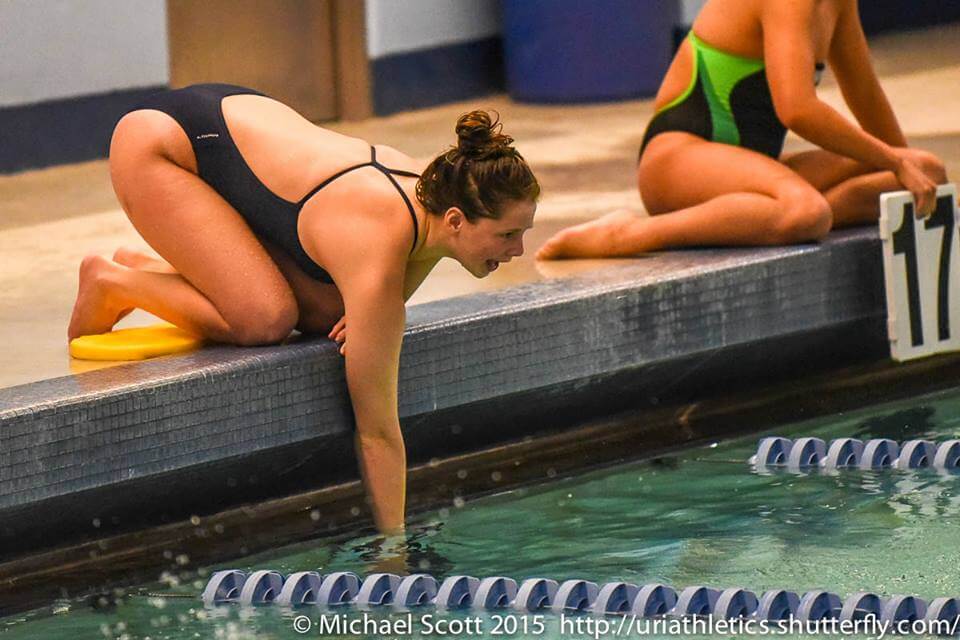
By Molly Lloyd, Swimming World College Intern
As a diver, swimming has always baffled me. Swimmers’ commitments to going back and forth and back and forth for hours on end both impressed and confused me. Sure, I swam summer swim team for a while, but I had never swum club and I never, ever, swam year-round.
Throughout my years of being around swimmers, important (dare I say revolutionary?) questions began culminating in my head, and now I demand they be answered. And who better to answer them than fellow Swimming World intern, distance swimmer, and my sister, Sarah Lloyd? Get ready, swimming world, I’m asking the big questions…
Molly: What’s it like having your entire sport be cardio? Do you think you have better lungs than everyone else?
Sarah: Having my entire sport consist of cardio is great because I can walk up a flight of stairs and not break a sweat. I can also fill a blood bag way faster than you can, hehe. But no, I definitely don’t have better lungs than anyone. I still struggle with underwater 25s.
M: Hey, just because you can donate blood faster than I can doesn’t mean you’re better than me, ha. It’s good to know you don’t think you’re superhuman. Do you ever get just one line of a song stuck in your head while swimming distance events? Does it get annoying after a while?
S: You have no idea how annoying it can be when you have just one line of a song stuck in your head for a set of 45x75s at mile pace. Especially when it’s a line from a song that you don’t even particularly like. I swam an entire practice with a single line from “London Bridge” by Fergie stuck in my head once. It was a new brand of hell. But sometimes it’s good, too, because I had the chorus of “Work This Body” by Walk the Moon stuck in my head during my mile at our mid-season meet last year and I dropped 19 seconds, so…
M: Your experience with Fergie sounds rough, but Walk the Moon is always a plus. Speaking of distance sets, do you ever make up games to play with yourself so you don’t get bored during a distance set?
S: The game I play during sets is called “Don’t Die” and it consists of constant positive thoughts and verbal encouragements to the rest of my teammates so that they don’t die, either. Basically, we just try to be positive and encouraging to each other because sometimes our workouts absolutely suck.
M: That sounds really wonderful, I love mutual team encouragement during difficult sets. How do you not choke on the water when you use the snorkels? I’ve tried and there’s always a little bit of water left over and I don’t have enough air in my lungs to get it out.
S: The key to snorkels is to use one, really powerful breath to expel any extra water right as you surface. And if there’s any water left afterwards, I kind of just filter it through my mouth to breath enough to expel that afterwards. But yes, snorkels are hard, especially breathing only through your mouth for the first couple of uses. I’ve inhaled water through my nose while using a snorkel before and that’s definitely unpleasant.
M: Ah, I’ll keep that in mind for next time. Walk me through the process of putting on a racing suit. Do you ever need help with that?
S: Putting on a tech suit can be one of the most emotional things a swimmer can ever experience. Somehow you have to fit something that appears to be the size of a toddler on your non-toddler body and manage to keep it intact. I had a teammate once refer to tech suits as sausage casings. Help is absolutely necessary. Sometimes you just have to have a friend put their hands down the suit to make sure it goes over your butt. Same goes for getting those straps over your shoulders. You’re not going to be able to do it on your own. And don’t get me started on the amount of jumping it takes sometimes. Or the panic that accompanies a rip.
M: I can’t even imagine how difficult and time-consuming that process is. I’m grateful I get to wear a normal meet suit during all meets. What’s your best method of getting the water out of your ear after practice? Because I’ve been struggling with that recently and am willing to try new things.
S: I use two methods of getting water out of my ears. The first is the classic head tilt and shake. This usually gets the job done, but it can garner some funny looks from professors and classmates. The other is kind of a suction method, where you put your thumb overtop of your ear canal and press and twist until you hear kind of a squelch of the water in your ear. If you do it right, there should be some mild resistance as you pull your thumb away–suction–which helps draw the water out. If all else fails, Q-tips can do the job, too.
M: I’ll try both of those next time! Do you ever just feel like your limbs are going to fall off after swimming for an extended period of time?
S: I don’t necessarily feel like my limbs will fall off, but the overwhelming fatigue can really be something. The sensation of heavy arms and legs is not really a welcomed one. Sometimes there’s a numbness that creeps in, especially after a race. And, of course, the tightness of not properly warming down after a race can haunt you for days.
M: What goes through your mind while watching diving? Would you ever try it?
S: When I watch diving, I’m always amazed at the sheer willpower it takes the divers to throw some of those tricks. The skill is also so impressive. I’ve tried the rudimentary skills of diving with some of the divers here at Kenyon and I can tell you definitively that I am not very good. I lack the necessary coordination, flexibility, and courage to execute even a simple front flip.
M: Aw, thanks Sarah! And I’m sure with more practice you could get the front flip! I assume that both divers and swimmers visualize, but in different ways. How do you normally visualize before events?
S: A swimmer’s visualization can actually be a lot like that of a diver, it just might take longer. The most diligent of swimmers will visualize everything in the race–start, breakout, each stroke, turn, finish, splits, final time, physical feelings, etc. Usually the visualization is based around a desired time or finish. Other swimmers will visualize specific parts of the race that they want to get perfect. It all depends.
M: Swimming can be both mentally and physically taxing, how do you get yourself through morning practices and doubles?
S: I think the process of mornings and doubles is made so much easier when you enjoy the people you do it with. If you can find little things to laugh about at 5:45 in the morning or a friend to get through a tough set with, you’re going to be infinitely happier than you would be if you went at it alone or complained the whole time. There’s also the understanding that everything you do is working towards progress for yourself and your team, which can keep you going even when you’re working on four hours of sleep, multiple papers, and legs that are about to quit.
M: Aren’t teammates just the best? They definitely have gotten me through some difficult times. What’s the best advice you’ve ever gotten from a coach?
S: The best advice I’ve ever gotten from a coach was Jess Book‘s “five-minute memory.” After a race, you can exist in whatever came of it for five minutes–celebrate the best swim of your life or sulk in a pitiful performance, but you only get five minutes to do it. After that, you reset yourself and reengage with your teammates and the meet going on. It’s really put things in perspective for me. My own race is no more important than anyone else’s race so existing only within myself and within my own swims doesn’t do much good for the team as a whole. The five-minute memory idea makes sure that you leave your own head and engage with your teammates.
M: That’s a lot like what my coach has told me, except that in diving you can’t do it after a dive, you have to wait for after the event itself is over. What does your team mean to you?
S: My team means everything to me. I’ve often said that I can’t image swimming anywhere but Kenyon and that’s because the team fosters one of the most supportive and encouraging environments I’ve ever experienced. When you train with people you love, it makes you love the sport so much more. The team dynamic changes every year with seniors graduating and freshmen coming in, but the general atmosphere of love, support, and fun remains fairly constant, which I love.
M: Finally, what do you think you’ve learned from swimming after all these years? How has it shaped your personality?
S: Swimming for 13 years has definitely given me a pretty strong work ethic. I feel like I’m pretty good at getting things done when they need to get done, even in a time crunch. I also really enjoy pushing my body to its absolute limits, finding a new thing that sends it over the edge. I don’t know that I would be so masochistic if I hadn’t found swimming, haha. But in all seriousness, swimming has done wonders for me over the years and I will be forever grateful for the sport.
Well, there you have it, some of our biggest questions, finally answered. Look out for part two, “Diving Investigated…By A Swimmer,” on Thursday, October 1.




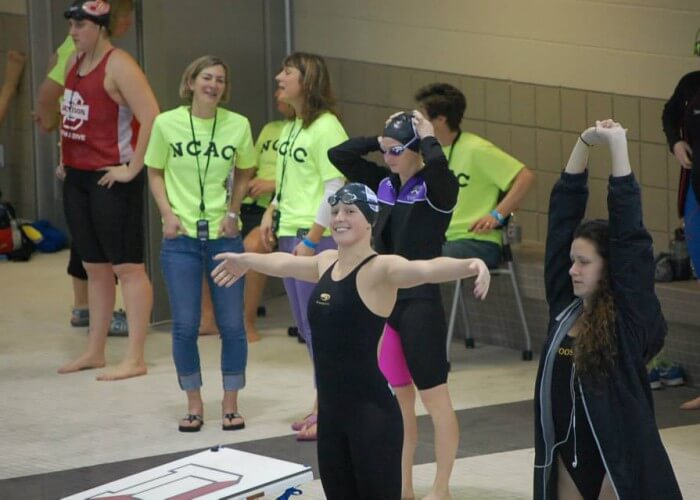
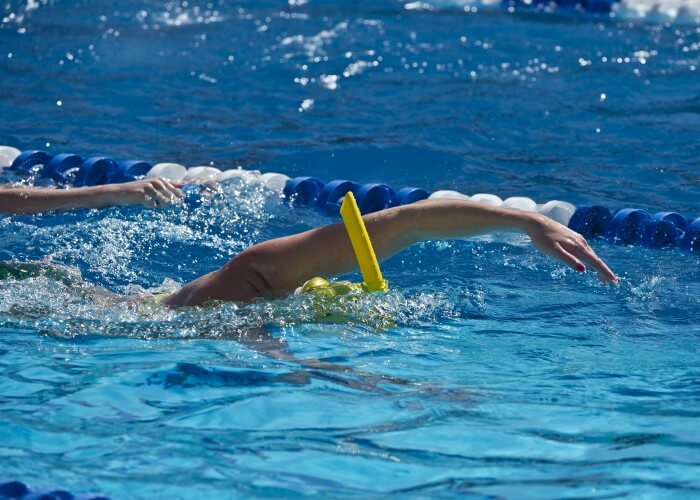
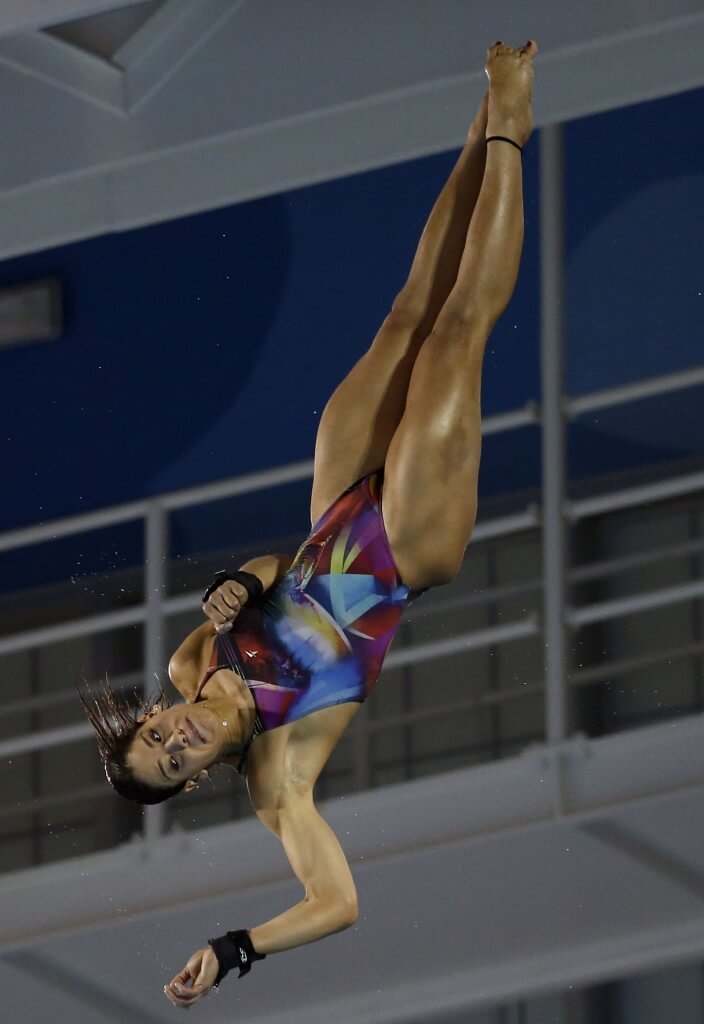
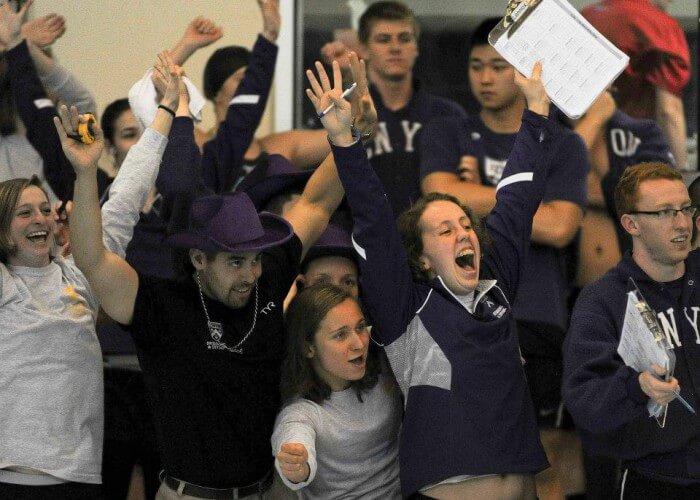
Enjoyed reading this! Looking forward to part 2!
Así me tenes que contar las vueltas en los 1500 Victor Aguero